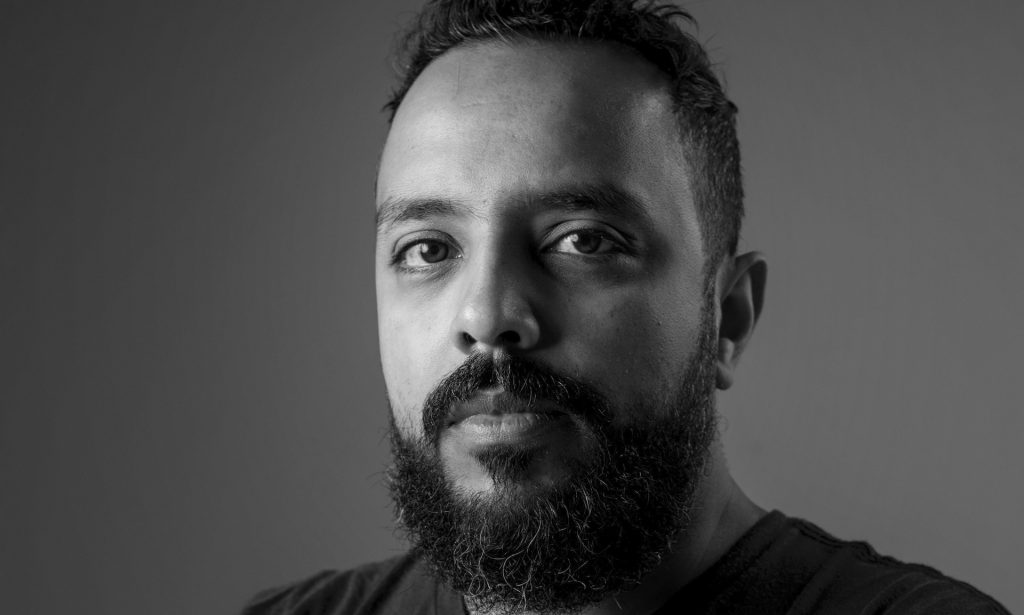MOHAMED KORDOFANI

BIO
Mohamed Kordofani is a Sudanese aircraft engineer and filmmaker. In 2014 he enrolled in a one-year independent filmmaking course and founded Kordofani Films that same year. He went on to direct several music videos and television commercials before debuting his first short narrative Gone for Gold (2015). His film Nyerkuk (2016) won the Black Elephant Award for Best Sudanese Film, NAAS Award for Best Arab Film (Carthage IFF), among other awards in several film festivals. Kejer’s Prison (2019) was screened during the Sudanese revolution at the sit-in square in front of thousands of protesters. A Tour in Love Republic was the 1st pro-revolution film to be broadcasted on Sudan’s national TV. His latest film, Goodbye Julia, has been screened and received multiple awards worldwide, among them The Freedom Prize in Cannes.
DIRECTOR’S STATEMENT
In Sudan, the racism that was practiced for many decades from most Northern Arabs, government and people, was a major reason for the southerners choosing to secede. This was most evident when the results revealed a whopping %99 of Southerners wanted to separate. It is not possible for an entire people to choose secession for any other reason. I realized then that I was somehow responsible for that decision, for all my life in Khartoum I had known no one from the south except for some domestic workers as if we had practiced social apartheid. Writing this film was part of a continuous effort to get rid of that inherited racism, motivated by a sense of guilt and a desire for reconciliation and a call for it, even if it seems late. Reconciliation is not only necessary with Southerners, but we need it as a national project to preserve what is left of Sudan and to build a new national identity that is proud of the values of humanity, coexistence, and justice instead of race, tribe, and gender.
GOODBYE JULIA is a difficult journey through the collective memory of Sudanese and South Sudanese peoples that deals with the normal everyday living of two women linked together by unusual social and political situations that impacted them greatly. Its narrative is inspired by the stages of reconciliation, and it discusses themes such as remorse, compensation, disclosure, confession of guilt, and repentance for it.

